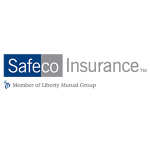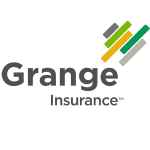Contact us today for a quote! 865-670-2990
Providing exceptional service since 1977
Liability pays for losses you cause others. This includes bodily injury and property damage. Examples of property damage includes others’ vehicles, mailboxes, buildings, road signs, etc.
Uninsured/underinsured motorist coverage can cover your medical bills and property damage if you’re hit by an uninsured or underinsured driver.
Medical payments help to cover medical bills that result from a car crash for you and any passengers. Some states legally require drivers to carry medical payments coverage.
Collision coverage protects your vehicle against collisions with another vehicle or object. This can include single-vehicle accidents, such as accidentally hitting a sign or utility pole.
Comprehensive coverage, also known as “other than collision” coverage, can protect your vehicle from damage caused by events that are unexpected and outside of your control such as hail damage or hitting a deer.
Rental car reimbursement coverage may cover the cost of a rental car if your vehicle is damaged in a covered accident and can’t be driven. This covers the cost of a rental car up to a certain dollar amount per day for a set number of days.
Roadside assistance will often provide towing, up to a certain distance specified on your policy. This also includes coverage for services such as jump-starting a dead battery or assistance changing a flat tire.
Gap insurance is an optional auto insurance coverage that applies if your car is deemed a total loss. When your loan amount is more than your vehicle is worth, gap insurance coverage can help to pay the difference.
Rideshare coverage protects you and your vehicle if you drive for a ridesharing service such as Uber and Lyft. While ridesharing companies may provide some insurance for their drivers, their coverage may be limited.
Most states, including Tennessee, require that, require you to be financially responsible in the event of an automobile accident. Uninsured drivers in Tennessee will pay fines and risk losing their vehicle registration if they are unable to demonstrate proof of financial responsibility.
Tennessee’s Financial Responsibility Law requires drivers to carry minimum liability limits of:
• $25,000 for each injury or death per accident.
• $50,000 for total injuries or deaths per accident.
• $25,000 for property damage per accident.
A car or truck is often your biggest asset aside from your home. Auto insurance protects against catastrophic financial losses.
Most lenders require you to carry comprehensive and collision.
Liability pays for losses you cause others. This includes bodily injury and property damage. Examples of property damage includes others’ vehicles, mailboxes, buildings, road signs, etc.
Uninsured/underinsured motorist coverage can cover your medical bills and property damage if you’re hit by an uninsured or underinsured driver.
Medical payments help to cover medical bills that result from a car crash for you and any passengers. Some states legally require drivers to carry medical payments coverage.
Collision coverage protects your vehicle against collisions with another vehicle or object. This can include single-vehicle accidents, such as accidentally hitting a sign or utility pole.
Comprehensive coverage, also known as “other than collision” coverage, can protect your vehicle from damage caused by events that are unexpected and outside of your control such as hail damage or hitting a deer.
Rental car reimbursement coverage may cover the cost of a rental car if your vehicle is damaged in a covered accident and can’t be driven. This covers the cost of a rental car up to a certain dollar amount per day for a set number of days.
Roadside assistance will often provide towing, up to a certain distance specified on your policy. This also includes coverage for services such as jump-starting a dead battery or assistance changing a flat tire.
Gap insurance is an optional auto insurance coverage that applies if your car is deemed a total loss. When your loan amount is more than your vehicle is worth, gap insurance coverage can help to pay the difference.
Rideshare coverage protects you and your vehicle if you drive for a ridesharing service such as Uber and Lyft. While ridesharing companies may provide some insurance for their drivers, their coverage may be limited.
Most states, including Tennessee, require that, require you to be financially responsible in the event of an automobile accident. Uninsured drivers in Tennessee will pay fines and risk losing their vehicle registration if they are unable to demonstrate proof of financial responsibility.
Tennessee's Financial Responsibility Law requires drivers to carry minimum liability limits of:
• $25,000 for each injury or death per accident
• $50,000 for total injuries or deaths per accident
• $25,000 for property damage per accident
A car or truck is often your biggest asset aside from your home. Auto insurance protects against catastrophic financial losses.
A car or truck is often your biggest asset aside from your home. Auto insurance protects against catastrophic financial losses.








William Knight Insurance Agency Inc
Monday - Thursday: 8:30 am - 5:00pm
Friday: 8:30 am - 4:30pm
Saturday & Sunday: CLOSED